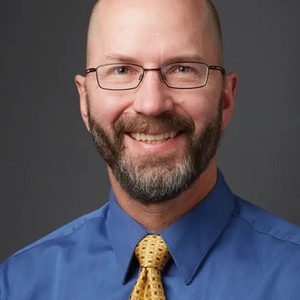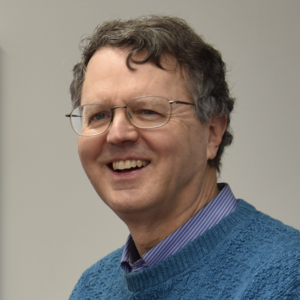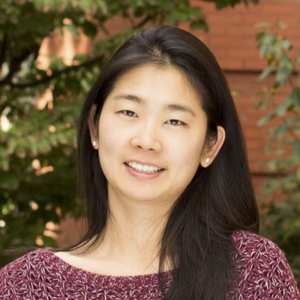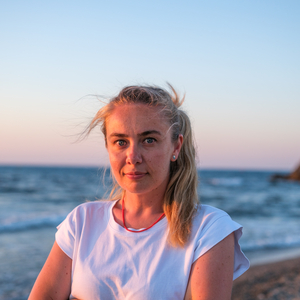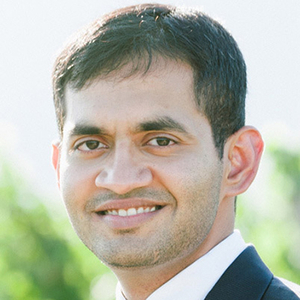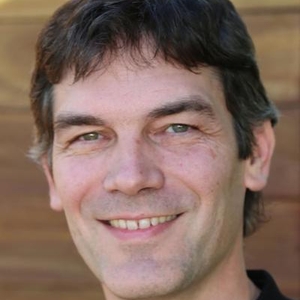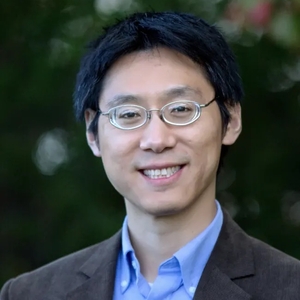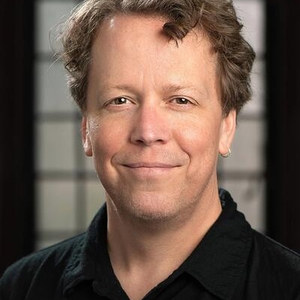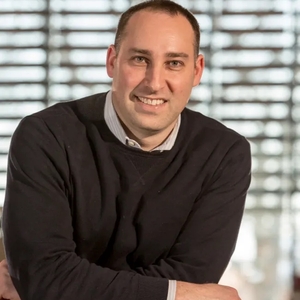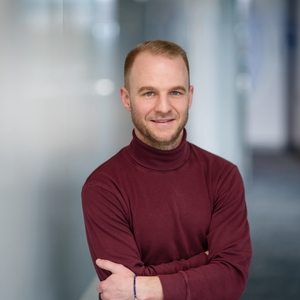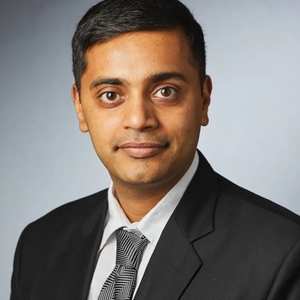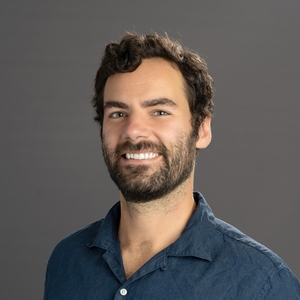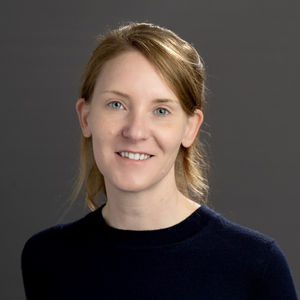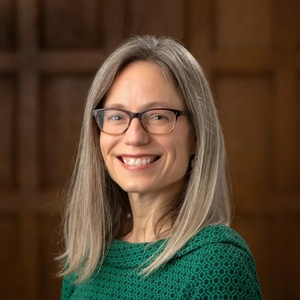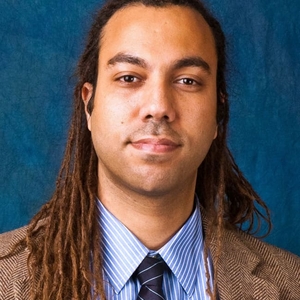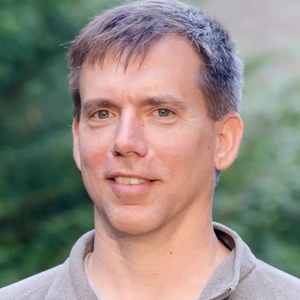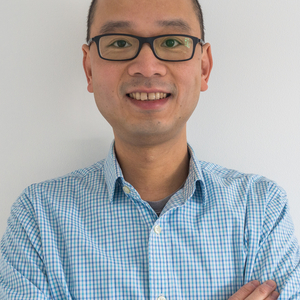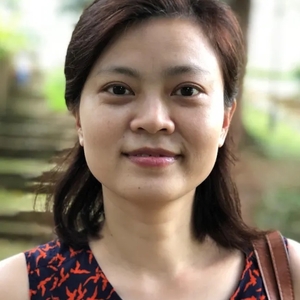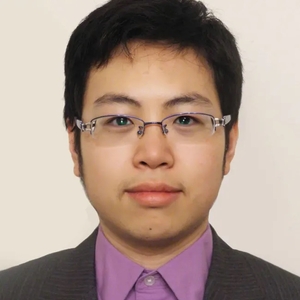How do individual components come together to create complex biological phenomena? Researchers studying collective behavior work to understand how a group of individual organisms or cells coordinate their behavior to achieve a desired outcome. Labs working on cancer systems biology and systems immunology work to understand the intricate interplay between different cell types and signaling pathways during the progression of cancer and the immune response, respectively.
Featured Research
Investigating non-genetic adaptation by collective migration
Lam Vo ‘26
he/him
Molecular, Cellular, and Developmental Biology (Emonet Lab)

Characterizing transcription factor networks that tune macrophage heterogeneity
Iyad Sayed Issa ‘27
he/him
Molecular, Cellular, and Developmental Biology (Miller-Jensen Lab)

Faculty
-
Marcus Bosenberg
Professor; Dermatology, Pathology, and ImmunobiologyResearch Interests: Melanoma biology; soft tissue tumors -
John Carlson
Professor; Molecular, Cellular & Developmental BiologyResearch Interests: Molecular basis of olfaction, taste, and pheromone perception -
Hattie Chung
Assistant Professor; Cardiovascular Medicine and Molecular, Cellular, and Developmental BiologyResearch Interests: We study the molecular basis of cellular heterogeneity and tissue organization in health and disease through the lens of systems biology by pioneering novel computational and experimental tools, with applications to cardiovascular disease and ovarian aging. -
Martina Dal Bello
Assistant Professor; Ecology and Evolutionary BiologyResearch Interests: research in the Dal Bello lab focuses on how microbes respond to and modify their environment, and how these feedback processes shape species interactions, assembly processes, and the function of microbial communities. -
Purushottam Dixit
Assistant Professor; Biomedical EngineeringResearch Interests: Build machine learning methds that are rooted in statistical physics to analyze high quality high dimensional “omics” data from biological systems -
Thierry Emonet
Professor; Molecular, Cellular & Developmental Biology and PhysicsResearch Interests: We combine theory and experiments to understand the computations organisms perform to navigate chemical environments. Bacteria: we analyze information processing in individual cells, the molecular basis of individuality, and how biological diversity benefits populations. Fruit flies: we examine how insects perform goal oriented olfactory navigation, and how they adapt decision-making strategies in real time as odor signal statistics and environmental conditions change -
Rong Fan
Professor; Biomedical EngineeringResearch Interests: Combining single-cell analysis technology and systems biology to study cell-cell communication and cellular heterogeneity in human cancers and the immune system -
Scott Holley
Professor; Molecular, Cellular & Developmental BiologyResearch Interests: The systems biology, biomechanics and molecular biophysics of early spinal column development -
Joe Howard
Professor; Molecular Biophysics & Biochemistry and PhysicsResearch Interests: Microtubules and molecular motors. Branching morphogenesis of neurons. Motility of cilia and flagella. Nerve nets. -
Farren Isaacs
Professor; Molecular, Cellular & Developmental BiologyResearch Interests: Synthetic Biology, Genome Engineering, Systems Biology, Bioengineering, Engineered biomaterials & RNAs -
Christopher Lynn
Assistant Professor; PhysicsResearch Interests: Understanding how structure and function emerge in complex living systems, particularly the brain. -
Nikhil Malvankar
Associate Professor; Molecular Biophysics & BiochemistryResearch Interests: Single-Cell Imaging & Control of Microbial Metabolism via Protein Nanowires: Combining experiments with theoretical and computational modeling to address how environmentally and clinically important microbes build & use hair-like “nanowires” to export electrons outside their cell body, during respiration, communication, and pathogenesis by tuning nanowire conductivity using light, pressure, temperature, electromagnetic fields, humidity, non-natural ‘click’ chemistry and quantum coherence -
Harry McNamara
Assistant Professor; Molecular, Cellular & Developmental BiologyResearch Interests: Synthetic developmental biology: measuring and controlling stem cells to understand how they self-organize multicellular structures in vitro (organoids, embryoids) -
Kirstin Meyer
Assistant Professor; Molecular, Cellular, and Developmental BiologyResearch Interests: We seek to understand molecular mechanisms of emergent gene regulatory behavior, with a focus on temporal information transmission, mechanosensing, and chromatin biophysics. -
Kathryn Miller-Jensen
Associate Professor; Biomedical Engineering and Molecular, Cellular & Developmental BiologyResearch Interests: HIV latency; signaling pathways; high-throughput single cell analysis; computational, experimental and systems-level approaches -
Michael Murrell
Associate Professor; Biomedical Engineering and PhysicsResearch Interests: Non-equilibrium thermodynamics, active matter, biophysics, synthetic biology, cytoskeletal mechanics. -
Corey O'Hern
Professor; Mechanical Engineering & Materials Science, Physics, Applied Physics and Graduate Program in Computational Biology & BioinformaticsResearch Interests: Statistical mechanics of nonequilibrium systems; glass and jamming transitions in soft matter; computational biology; protein structure, interactions, and design. -
Maria Rodriguez Martinez
Associate Professor; Biomedical Informatics and Data ScienceResearch Interests: My research bridges state-of-the-art deep learning, including transformers, structural predictors, and generative AI, with biophysics and computational immunology to decode how immune receptors function and recognize diverse antigens. -
Edward Stites
Associate Professor; Laboratory Medicine & PathologyResearch Interests: mathematical modeling, informed machine learning, cancer biology/disease biology, systems biology, synthetic biology -
John Tsang
Professor; Immunobiology and Biomedical EngineeringResearch Interests: Systems and quantitative immunology; human immunology; single cell biology; predicting and modeling immune responses; synthetic immunology: predictive engineering of immune cell trafficking and sensing; immune homeostasis maintenance and set point establishment mechanisms; integrating dynamical modeling and machine learning to understand emergent immune system behavior across temporal and spatial scales. -
Min Wu
Associate Professor; Cell BiologyResearch Interests: Single cell oscillations and travelling waves, membrane curvature, mitosis, cell size -
Jing Yan
Assistant Professor, Molecular, Cellular & Developmental BiologyResearch Interests: Imaging and modeling the developmental process of bacterial communities, characterizing and understanding the soft matter properties of bacterial biofilms, designing new bioinspired materials and surfaces
